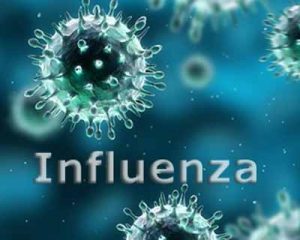- Home
- Editorial
- News
- Practice Guidelines
- Anesthesiology Guidelines
- Cancer Guidelines
- Cardiac Sciences Guidelines
- Critical Care Guidelines
- Dentistry Guidelines
- Dermatology Guidelines
- Diabetes and Endo Guidelines
- Diagnostics Guidelines
- ENT Guidelines
- Featured Practice Guidelines
- Gastroenterology Guidelines
- Geriatrics Guidelines
- Medicine Guidelines
- Nephrology Guidelines
- Neurosciences Guidelines
- Obs and Gynae Guidelines
- Ophthalmology Guidelines
- Orthopaedics Guidelines
- Paediatrics Guidelines
- Psychiatry Guidelines
- Pulmonology Guidelines
- Radiology Guidelines
- Surgery Guidelines
- Urology Guidelines
IDSA releases updated guideline on management of Influenza

The Infectious Diseases Society of America (IDSA) has released updated recommendations for the diagnosis, treatment, chemoprophylaxis and institutional outbreak management of seasonal influenza.The new recommendations update guidelines previously published by IDSA in 2009 and have appeared in the journal Clinical Infectious Diseases
Key recommendations are:
- Individuals who present with influenza-like illness, pneumonia, or nonspecific respiratory illness (e.g., cough without fever) especially those at high-risk for flu complications such as hospitalization and death should be tested and promptly treated with antiviral treatment promptly if they are sick enough to be hospitalized with flu symptoms. Pregnant women and the extremely obese (BMI ≥40) are among those at high risk for complications from the flu.
Others in the high-risk category include:
- Young children (especially those younger than 2 years old)
- Immunocompromised individuals (such as people with HIV or AIDS, cancer, who have had an organ transplant or who are on chronic steroids)
- People younger than 19 years old who are receiving long-term aspirin therapy
- Persons with chronic medical conditions including asthma, neurological or neurodevelopmental disorders (such as cerebral palsy, epilepsy and stroke), heart or lung disease, kidney, liver or metabolic disorders; and nursing home residents
- Outpatients who have been diagnosed with the flu and are at high risk for complications should also be provided antiviral treatment as soon as possible.
- Newer and highly accurate molecular tests that deliver results in 15-60 minutes should be used to aid diagnosis instead of rapid-influenza diagnostic tests (RIDTs), which produce quick results but can be falsely negative in at least 30% of outpatients with influenza.
- Antiviral treatment is recommended within 2 days after the start of flu symptoms in people who are not at high risk for complications; the guidelines recommend that they should also be prescribed to those at high risk even if they have been sick for >2 days.
- Antiviral treatment should be started immediately in people at high risk of flu complications who are being admitted to the hospital with suspected influenza, without waiting for the results of molecular influenza testing. According to the guideline, influenza testing is important because physicians are more likely to treat patients with antiviral medications if they have a definitive diagnosis, further reducing the likelihood of prescribing antibiotics inappropriately, especially in outpatients.
- Infectious diseases (ID) experts should be consulted if people at high risk become seriously ill with influenza.
- Antiviral drugs should not be used for routine or widespread chemoprophylaxis outside of institutional outbreaks.
- Antiviral chemoprophylaxis for the duration of the influenza season can be considered for adults and children aged ≥3 months who have the highest risk of influenza-associated complications. Additionally, inactivated influenza vaccine is recommended for unvaccinated adults and children aged ≥3 months who are at high risk of developing complications from influenza in whom influenza vaccination is expected to be effective (but not yet administered).
For full Guideline log on to :
https://doi.org/10.1093/cid/ciy866
chemoprophylaxisdiagnostic testingdisease outbreaksfluIDSA Guidelineinfluenzainstitutional outbreaksseasonal influenzatreatment
Next Story
NO DATA FOUND

Disclaimer: This site is primarily intended for healthcare professionals. Any content/information on this website does not replace the advice of medical and/or health professionals and should not be construed as medical/diagnostic advice/endorsement or prescription. Use of this site is subject to our terms of use, privacy policy, advertisement policy. © 2020 Minerva Medical Treatment Pvt Ltd